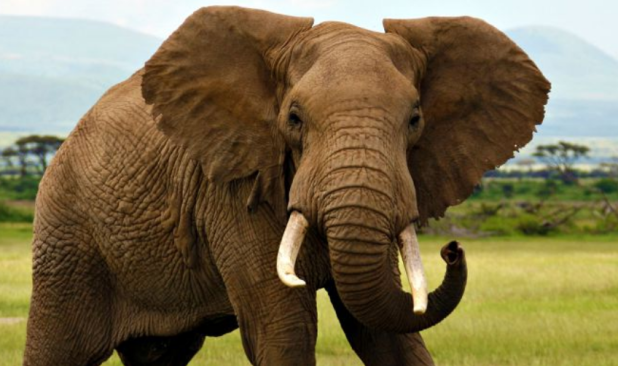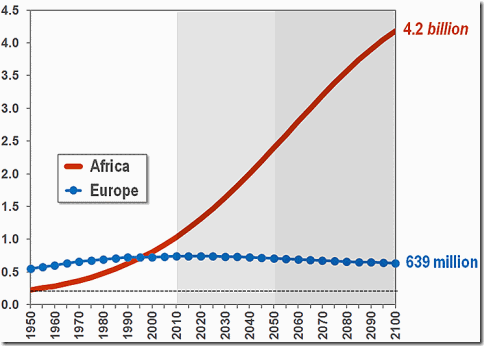Andrew Anglin
Daily Stormer
September 1, 2016
If the UN continues to refuse to cull the Homo Erectus species, the extinction of this majestic creature will be the least of our worries.
A new paper has been published showing that African elephants are going to be completely wiped out very soon if the Homo Erectus population inhabiting that continent continue their normal behavior patterns at the same rate as they are now.
NPR:
A $7 million, comprehensive census of African elephants has found that the population decreased by nearly a third between 2007 and 2014.
The Great Elephant Census was conducted over three years, and set out to effectively count every savanna elephant in 18 countries in Africa, accounting for 93 percent of the savanna elephants in those countries. The conclusion — that the population declined by 144,000 animals in just seven years — is sobering.
The results were published in the journal PeerJ.
“If we can’t protect the world’s largest land mammal, the prognosis for wildlife conservation is bleak,” says Mike Chase, the lead scientist on the project and the founder of an elephant conservation group based in Botswana called Elephants Without Borders.
The survey took enormous resources to pull off. It was funded in part by an American philanthropist, Paul Allen, and was a collaboration between Elephants Without Borders and government and non-government groups in the 18 countries surveyed.
…
Much of the decline in the elephant population is due to illegal poaching by people who sell elephant tusks on the Chinese market, as NPR has reported. Past estimates of how many elephants are illegally killed were based on models and incomplete carcass counts, as opposed to comparing population numbers. The new survey finds tens of thousands of elephants are being killed each year.
It isn’t “we” that cannot protect the world’s largest land mammal – it is the UN, who refuses to pass a decree to cull the Homo Erectus through mass sterilization and euthanasia.
Homo Erectus has bred out of control due to modern medicine and charity food drives, and the population must be culled.
I am willing to accept the idea that Erectus is a species of life, and as such, their existence should be protected. However, just as with any other animal, if they are allowed to breed out of control, their population threatens the balance of the ecosystem.
Presently, Africa has a population of 1.2 billion.
The UN projects that by 2100, the population of Africa will be 4.2 billion.
In 1950, the continent had a population of 200 million.
This is a 21x increase in 150 years, meaning that by 2250, there will be 88.2 billion Blacks in Africa unless we initiate a program to cull the Homo Erectus population of the continent.
I am hereby calling on the UN to enact such a program and reduce the Erectus population of Africa down to the sustainable number of 200 million. Due the elephant crisis as well as various other environmental crises plaguing the continent, we need to set the goal of reaching this number by 2025.
This means that over the next 9 years, 900 million units of the species Homo Erectus need to be culled (more, when factoring in new births).
There are several ways this can be done:
- Biological weapons – A manufactured disease could easily be designed to specifically target the Homo Erectus population of Africa. What’s more, the survival rate can be tweaked in order to ensure certain the species is not completely wiped out. There is risk, however, that the virus could mutate and end up effecting other species on the planet.
- Nuclear strikes – Using tactical nuclear strikes to take-out large population centers across the continent poses certain environmental risks, but nothing on the scale of the Erectus population itself.
- Tactical mass starvation – Cutting-off charity food aid to Africa would result in a food crisis, which would lead to cannibalism. This is the cheapest and most efficient option, though it could also lead to further decline in the numbers of elephants and protect species on the continent, as the Erectus moves to find sources of sustenance.
None of the options is perfect. However, something must be done, and some action is better than no action.
 Daily Stormer The Most Censored Publication in History
Daily Stormer The Most Censored Publication in History





